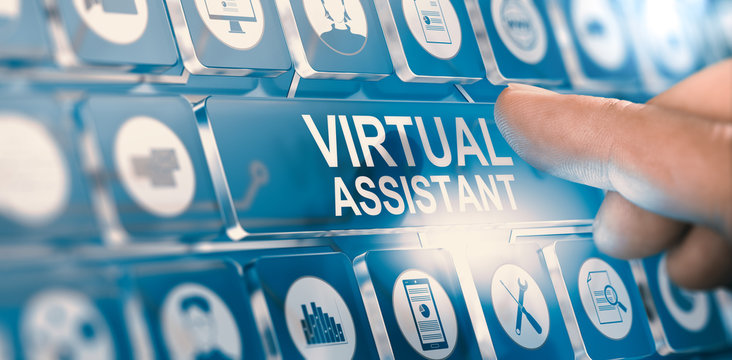Work and Life Revolutionized In the modern digital world, technological ideas have the potential to change how we think about living and working. Perhaps one of the most innovative is the virtual assistant that draws on inputs from humans, artificial intelligence, and automation to support a variety of tasks. No longer a novelty, virtual assistants have quickly become some of the most important items in modern life, weaving through everything that transpires-from the way businesses are run to how individuals get productive work done.
What Is a Virtual Assistant?
Virtual assistant can suggest human-powered remote assistance and AI-driven applications like Siri, Google Assistant, and Alexa. Generally speaking, in business, virtual assistant typically means any remote employee who provides clients with administrative, technical, and sometimes creative support by performing different tasks- scheduling and data entry, email management, customer service, etc.
On the other side, AI-powered VAs is application software that can perform a whole train of activities based on what a user might want or request. These run from simple activities like reminding, checking the weather, and managing calendars up to very sophisticated operations like solving complex queries and automation of workflows. Some AI-enabled VAs can learn based on user behavior to proffer proactive suggestions, hence a personalized experience.
Use in Business
Virtual assistants have significantly impacted business, particularly for small and medium-sized enterprises. It is unaffordable and expensive to most entrepreneurs and small business owners in hiring full-time employees on some administrative-related work. The answer is virtual assistants, who may be available cost-efficiently to them, skilled workers or, in this case, AI systems that can attend to the critical work without occupying a place or requiring benefits to be paid.
Human VAs are usually contracted employees. This allows firms to run flexible work programs. What kind of employees they hire usually have some specialty-had experience in digital marketing, project management, or customer support. This allows companies to tap into a skill pool that borders the whole globe and in no geographical restriction helps improve productivity and efficiency.
AI-based virtual assistants are also being introduced in organizational settings. AI VAs can be used to reduce response times, automate routine queries, and improve customer satisfaction in customer support. In the corporate setting, AI assistants can manage other internal tasks and workflows while the human staff are busy with strategic initiatives, such as preparing meetings, report production, etc.
Impact on Personal Productivity
Virtual assistants are also changing personal productivity. VAs will be in charge of your calendar, and remind you when appointments come up; in most cases they will even order purchases from favorite online shopping stores for you. VAs make household chores relatively easy while increasing time spent with a head and fewer headaches. As if this were not already enough, hands-free voice-activated assistants such as Alexa or Google Assistant enable an individual to multitask quite easily, as one chats with one’s smartphone while still going about other activities.
Most users today rely on virtual assistants to, for example, regulate the smart home, follow up on their to-do lists, or simply browse information over the Internet. Convenience and velocity are very important in modern life precisely because, after all, time is of the essence in a speedy, fast world where work efficiency and other outside life activities indicate complete success.
Future of Virtual Assistants
With every successive innovation in technology, virtual assistants are going to be quite promising in the future. Virtual assistants get smarter, more intuitive, and capable of taking on complexities in capabilities as technologies advance by improving AI, machine learning, and natural language processing. The future of AI VA can, in fact, provide more personalized interaction, adapt to individual preferences, and provide predictive assistance for maximum productivity and convenience enhancement.
The virtual assistant will be made to speak more humanly, and this shall make man-machine interactions hassle-free. This human-conversation AI technology will affect many sectors such as health, education, and customer service.
Conclusion
Virtual assistants are certainly to alter the way individuals live and work. It’s only when they know how artificial intelligence works in a tool versus human-powered help that businesses as well as individuals can automate and manage tasks with effectiveness. As the technology grows further and it comes to support a future that appears to be even more efficient, productive, and well-connected than it already is, the extent to which virtual assistants enter one’s daily life can increase only.
